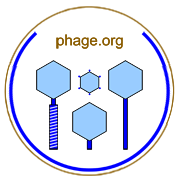

Post-adsorption and post-DNA-translocation blocking of secondary phage-genome functioning as mediated by resident prophage expression of repressor proteins.
Superinfection immunity specifically is the blocking of otherwise superinfecting phages from successfully initiating their infections. It is equivalent to simply immunity as expressed by prophages against other temperate but not yet lysogenically infecting phages.
Ecologically, the result of superinfection immunity is survival of the expressing lysogen as well as a greatly reduced potential for the establishment of polylysogeny. Only those phages that are homoimmune to resident prophages are impacted by superinfection immunity, however, not heteroimmune phages. See also immunity group.
Although superficially one might consider superinfection immunity to be useful to the expressing prophage – "The immunity (phage repressor) and super-infection exclusion genes of prophages that protect against extra phage infection confer obvious selective advantages
for the lysogenic host as well as for the prophage." (Brüssow and Kutter, 2005, p. 107) – in actuality it is not at all certain that the benefits are substantial. For example, from Moineau and Lévesque (2005), p. 289, "Although the presence of prophages may be, at least in theory, beneficial in protecting the bacteria against closely related phages…, the benefit of this superinfection immunity is limited because of the natural diversity of phage populations."
Note that superinfection exclusion and superinfection immunity are sometimes referred to as though they were equivalent phenomena. Superinfection exclusion, though, typically refers to translocation-level resistance rather than to the post-translocation-level resistance to otherwise superinfecting phages that is seen with superinfection immunity. Alternatively, the term immunity has been used with phages to describe additional phenomena including what is known as immunity to superinfecting phage ghosts (i.e., "immunity to ghosts").
For more on this topic, see Wikipedia, Google, and PubMed. Contact web master. Return to terms.